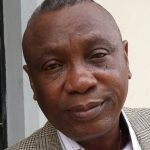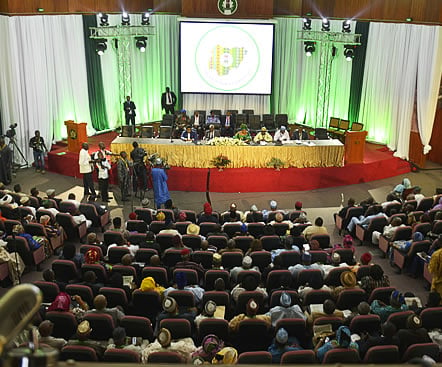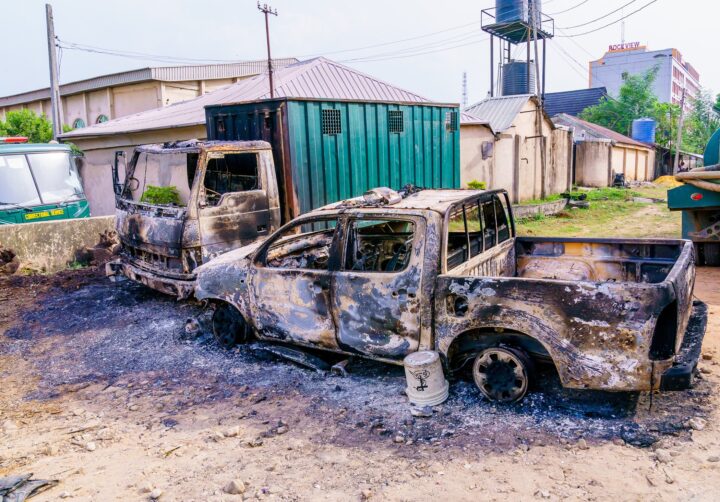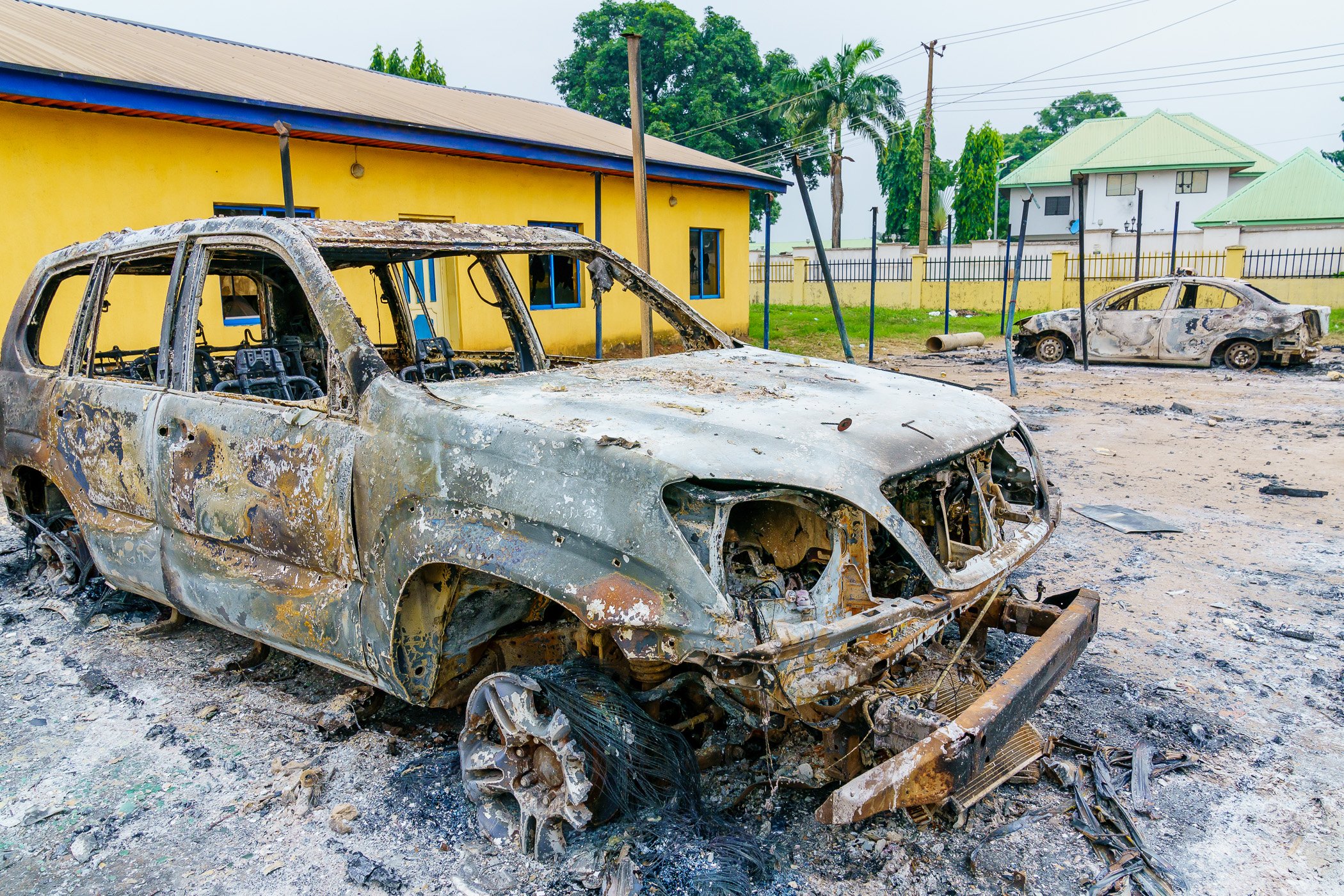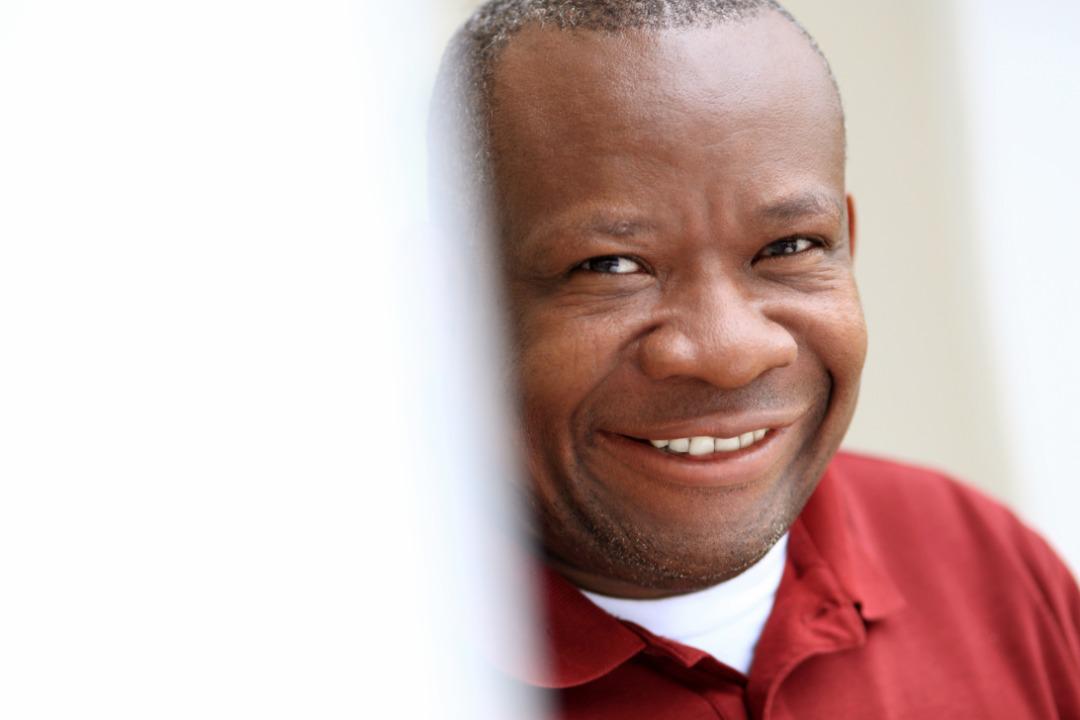To mark the first anniversary of his presidency on May 29, 2016, President Muhammadu Buhari, GCFR, granted a rare television interview. In an answer to a question on the National Conference of his predecessor, President Goodluck Jonathan, GCFR, held in 2014, President Muhammadu Buhari declared “I advised against the issue of National Conference. You would recall that ASUU was on strike then for almost nine months. The teachers in the tertiary institutions were on strike for more than a year yet that government had about N9billion to organize that meeting (National Conference), and some (members) were complaining that they hadn’t been paid. I never liked the priority of that government on that particular issue, because it meant that what the National Assembly could have handled was handed to the Conference, while the more important job of keeping our children in schools was abandoned. That is why I haven’t even bothered to read it or ask for briefing on it, and I want it to go into the so-called archives.”
I am sure that statement was made in error. His critics charged that the statement was overbearing and disdainful. We are told everyday that no knowledge is lost. Marie Julie Romney wrote that “no knowledge is lost, only sheathed in a sea of perfectly complacent heedless things”. Bipin Kumor G. J. added that “seek the knowledge, and everything else will find the way to you”. The statement drove away some people with genuine intentions who may have wished to give advice to President Buhari’s government. The statement gave an impression further that the President will not seek advice from anyone. A government like any organization requires collective leadership.
A common mistake leaders do is to act and behave that leadership is not a team sport like rugby or netball or football.
True collective leadership is what happens when several capable people with complementary strengths and competencies, sharing common high values and character, and centred around a compelling purpose and vision, combine to provide direction among a company of people and contribute to their success.
It requires specific conditions for the success of the whole: trust, shared power, transparent and effective communication, accountability, and shared learning. It is based on the recognition that without the diverse gifts, talents, perspectives, and efforts of many, sustainable change is difficult to achieve. Collective leadership is a process. It is dependent on the relationships among the human parts in the system, whether that system is two people working together, a team, or a whole organisation.
Advertisement
Leadership is not a one man show. It is the responsibility of every leader to bring everyone on board. No matter how powerful you are, you need friends. In fact the best leaders are those who search for friends and seek their advice. How can one throw into the dustbin the job of over four hundred delegates who took part in the National Conference of 2014. Certainly there must be some useful suggestions in their report. We are nearing anarchy in this country now. The solution does not lie in violence but in dialogue.
In the light of the present day events in this country, there is an urgent need to convey a National Conference, so that we can sit down and talk about the future of our country. I remember a famous quote by Sir Winston Churchill’s biographer, Sir Martin Gilbert, who quoted the former British Prime Minister as saying “jaw jaw is better than war war”. We must not allow this country to disintegrate on our heads. There is need to talk.
Since 1999 apart from President Umaru Musa Yar’adua(16 August 1951 – 5 May 2010), only President Muhammadu Buhari has failed to convey a Conference. President Yar’adua could be excused in that his health and eventual death robbed us of the ability to assess him properly. He was President from May 29th, 2007 till he died on 5th May, 2010. He spent his last nine months attending to his health.
Advertisement
On February 21, 2005, President Olusegun Obasanjo, GCFR, conveyed, the National Political Reform Conference. The Conference was organized by the Secretary to the Government of the Federation, Chief Ufot Ekaette, CFR, while his office was the Secretariat of the Conference. The Chairman of the Conference was Justice Niki Tobi CON (July 14, 1940 – June 19, 2016), while the deputy chairman was Alhaji Sule Katagum from Bauchi state and Ishaq Oloyede from Ogun state was co-secretary. The Secretary of the Conference was Matthew Hassan Kukah (69) born in Anchuna, Zangon Kataf Local Government Area of Kaduna state, an area that has seen so much unrest and oppression. You cannot come from Zangon Kataf and not be radical. Their story is a sad story. Bishop Kukah is the current bishop of the Roman Catholic Diocese of Sokoto. The assistant Secretary of the Conference was Mr. Akin Arikawe from Igbotako in Ondo state, who retired as a Permanent Secretary, Federal Ministry of Finance. Mr. Arikawe is now a finance Consultant in Abuja. I served as the media coordinator of the Conference.
Those who attended the Conference included Anyim Ude, Ayodeji Otegbola, Awaisu Kuta, Helen Esuene and Barnabas Gemade, Wale Oladipo, Martin Elechi, Aliyu Akwe Doma, Sule Lamido, Murtala Nyako, Ibrahim Shema, Jonah Jang and Adams Oshiomhole, Abdullahi Ganduje, Olusegun Adesegun, Yakubu Lame, Humphrey Abbah, Kabiru Turaki, Emeka Anyaoku, Barnabas Gemade, Afe Babalola, Kema Chikwe, Mathew Kukah, Olusola Saraki, Adamu Ciroma, Garba Nadama, Joshua Dogonyaro (Lt. General), Fidelis Oyakhilome, Ebitu Ukiwe, Chukwuemeka Ezeife, Victor Malu, Joseph Wayas, Bassey Asuquo, Matthias Offoboche, Edwin Clark, Martin Elechi, Nimi Brigss, Peter Okebukola, Wale Babalakin, Nkoyo Toyo, J. Idachaba, Bala Usman, Garba Nadama, Adebayo Adedeji, Matthew Mbu, Hassan Adamu (Wakilin Adamawa), Murtala Nyako, Samuel Ogbemudia, Maiji Maina Lawan, Don Etiebet, Jerry Useni, Olusegun Adesegun, Ike Nwachukwu, Chekwas Okorie, Shehu Sani, Mike Ozekhome, Umaru Shinkafi, Auwalu Yadudu, Paul Unongo, Albert Horsfall, Wale Babalakin, Ibrahim Tahir, Ishaq Oloyede, Peter Adebiyi, Abdukadir Orire, Tony Nwoye, Baba Dantiye, Smart Adeyemi, Nduka Obaigbena, Bello Mohammed, Ibrahim Haruna (Major General), Femi Okurounmu, Joe Irukwu, Don Etiebet, Ajibola Ogunshola, Isaac Shaahu, Senator Francis Ellah, John Dara, Leedum Mitee, Adeyinka Adebayo (General), Jerry Gana, Kanu Agabi, Iro Dan Musa, Joy Ogwu, and Fola Adeola.
Others were Polycarp Nwite, Mike Akhigbe, Uba Ahmed, Emmanuel Iwuanyanwu, Umaru Dikko, Ango Abdullahi, Saidu Barda, Bello Kaliel, Attahiru Jega, Ahmadu Ali, David Jemibewon, Kawu Baraje, Sikiru Shita-Bey, Femi Okunnu, Usman Jubrin, Bola Ajibola, Oluwole Rotimi, Tunji Otegbeye, Oba Sikiru Adetona, Akin Aduwo, Olusola Oke, Ebenezer Babatope, Sunday Adewusi, Richard Akinjide, Alfred Diette-Spiff, John Wash Pam, Solomon Lar, Adamu Fika, Alwali Kazir, William Okoye, Bagudu Mamman, Alfred Akawo (Tor Tiv), Nnaemeka Achebe, Olateru Olagbegi, Stella Omu and Helen Esuene.
Declaring the Conference open, President Olusegun Obasanjo said, “We are once again, at the threshold of history. History has presented us with the opportunity to reassess, refocus, redefine and redesign our political landscape in a direction that would strengthen the bonds of unity, enhance the processes of democratic consolidation, strengthen the structures so as to solidify those values that promote democracy, good governance and good neighborliness; and open boundless opportunities for all Nigerians to be, and to feel that they are part of the evolving political process and socio-economic advancement. This is equally in line with our realization that our current political arrangement has some identified distortions, defects, and limitations that call for urgent, focused, and realistic attention,hence this initiative on political reform. Our history as a nation shows very clearly that we have been
through some difficult times. We have missed great opportunities.
Advertisement
Our historical experience at constitution making and political reform shows that we may have some structural defects that require adjustment so as not to continue to constrain the deepening, widening and consolidation of democratic values and practices. Indeed, some of the contradictions and challenges problems for us to this day. The Federal Government has no hidden agenda in this exercise. This effort is the product of widespread consultations with salient stakeholders including the leadership of the National Assembly and the National Council of State. We have paid attention to and insisted on integrity, track record, capacity and ability to articulate relevant issues. We are not at war with any constituency or interest group. Rather, we are laying bare, opportunities for all Nigerians to be part of a historic process of working for sustained democracy, positive change and enduring polity. This is even more important given our deep concern about the successor generation and the foundations that we lay today.
Our country has grown far beyond these opportunistic grandstanding strategies that rely on ideologies, methods, language and ideas of the past that have been transcended all over the world. I want to urge all Nigerians to participate, contribute and to take full advantage of this opportunity to be part of reforming our political process. Let us learn to look up and look forward and to see the Nigerian cup as half full with boundless potentials as against seeing it as half-empty.
In addition to the Background Paper, the Conference will have at its disposal the Constitution of the Federal Republic of Nigeria as we have practiced it up to this moment; the Report of the All Party Committee on the Review of the 1999 Constitution of the Federal Republic of Nigeria and the Draft Amended Constitution emanating from it; the Draft Electoral Bill which was submitted by the Independent National Electoral Commission (INEC) based on its own direct experience of running elections for two different terms at the three tiers of government; and the current socio-economic reform document, the National Economic Empowerment and Development Strategy (NEEDS) and the Oputa Panel Report.
The Committee is encouraged to engage in comparative studies without ignoring the realities and specificities as well as the historical experiences of Nigeria. It is my hope that the Conference will feel free to invite any individual or group that may or may not be represented at this conference but has submission or presentation to make. Do not allow your souls and thoughts to be contaminated by negative ideas and do not allow your honesty and integrity to be compromised by extraneous and inimical influences and
temptations. Be steadfast, patriotic, hardworking and focused on your goals at all times”.
Advertisement
Four hundred and two delegates attended the Conference held between February and July 2005. Copies of the report of that Conference are today in the office of the Secretary of the Government of the Federation. The Conference was followed by another Conference conveyed by President Goodluck Jonathan,GCFR, on February 28, 2014. There were four hundred and ninety-two delegates. President Goodluck Jonathan, GCFR, appointed a thirteen member Presidential Advisory committee headed by Senator Femi Okunronmu to prepare for the Conference. The other members of the committee, inaugurated on October 7, 2013, by the president were Akilu Indabawa (Secretary), Khairat Gwabade, Timothy Adudu, Olufunke Adeboye, George Obiozor, Solomon Asemota, Abubakar Mohammed, Bukhar Bello, Tony Uranta, Tony Nyaim (who later resigned), Dauda Birma, and Mairo Amshi.
The panel was tasked to advise government on the framework of a national dialogue by consulting widely with Nigerians. It was also asked to come up with an appropriate name/nomenclature for the proposed national dialogue.
The 2014 National Conference was inaugurated by the President Dr. Goodluck Ebele Jonathan on 17 March 2014 in Abuja. There were about 492 delegates that represented a cross-section of Nigerians including the professional bodies group. Following a plenary session that lasted for weeks, the Conference was broken into 20 committees that included Public Finance and Revenue among others. Principal Officers of the Conference were Chairman, Justice Idris Kutigi (rtd), Vice Chairman Prof. Bolaji Akinyemi Secretary Dr Valerie Azinge.
Advertisement
Main Committees: Devolution of Power Committee, Political Restructuring and Forms of Government National Security; Environment; Politics and Governance; Law, Judiciary, Human Rights and Legal Reform. Social Welfare; Transportation; Agriculture; Society, Labour and Sports; Public Service; Electoral Matters, Foreign Policy and Diaspora Matters, Land Tenure Matters and National Boundary. Trade and Investment Committee, Energy; Religion; Public Finance and Revenue Generation, Science, Technology and Development Immigration.
Prominent people who attended the Conference were Aremo Olusegun Osoba, Senator Musa Adede, Dr. Tunji Braithwaite, Chief Ayo Adebanjo, Chief Richard Akinjide, Chief Olu Falae, Chief Afe Babalola, General Ike Nwachukwu, Iyom Josephine Anenih, Senator Jim Nwobodo, Chief Mike Ahamba, Senator Azu Agboti , Chief Peter Odili, King Alfred Diete Spiff, Edwin K. Clark, Daisy Danjuma, Prof. Evara Ejemot Esu, Chief Nduese Essien, Prof. Ambrose Okwoli, Alhaji Abdulahi Ohoimah, Prof. Ibrahim Gambari, Mr. Dogara Mark Ogbole, Prof. Jerry Gana, Gen. Jonathan Temlong, Prof. Jibril Aminu, Alhaji Ahmadu Adamu Muazu, Arc. Ibrahim Bunu, Amb. Yerima Abdullahi, Mr. John Mamman, Alhaji Adamu Waziri, Alhaji Umaru Musa Zandan, Prof. Mohammed Jumari, Mallam Tanko Yakassai, Senator Ibrahim Idah, Hon. Justice Usman Mohammed Argungu, Prof. Sambo Jinadu, Ishia Aliyu Gusau, General A. B. Mamman, Gen. Zamani Lekwot, Maj. Gen. Alex Mshelbwala, Brig. Gen. DO Idada-Ikponmwen, Group Capt Ohadomere, Gen. Raji Rasaki, R. O. Osanaiye, AIG (rtd), Alh. Mamman Misau, AIG (rtd), Alhaji Bashiru Albasu, AIG (rtd.), Chief Nicholas Nkemdeme, CP (rtd), Barr. J. I. Ebinum, DCP (rtd), Barr. Samuel Adetuyi, CP (rtd), Chief Jeremiah Okwuonu, A. K. Horsfall, Mr. Iliya Danga, Chief Babatunde Ala, Amb. B. M. Sani and Amb. J. K. Shinkaiye. Others were His Royal Highnesses, Alh. Dr. Zayyanu Abdullahi, Emir of Yauri, Alh. (Dr.) Nuhu Mohammed Sanusi, Emir of Dutse, Dr. Muhammadu Barkindo Mustapha, CFR, Lamido of Adamawa, Alh. Abdullahi Ibn Muhammad Askirama III, Emir of Askira, Alh. Sulu Gambari, CFR, Emir of Ilorin, Elder Jacob Gyang Buba, Gbong Gwom Jos, Oba Michael Gbadebo Adedeji, JP, CON, Ariyowonye Lim Owaoye of Okemesi ,His Royal Majesty, Oba Arc. Aderemi A. Adedapo, Alayemore of Ido Osun, His Royal Highness, Eze (Dr) Cletus I. Illomuanya, Obi of Obinugwu, His Royal Highness, Eze Elder Agom Eze, OON, Dr. Edmund Daukuro, FNSE, Amanyanabo of Nembe Kingdom, Chief Nosakhare Isekhure, Chief Priest of Benin Kingdom and HRM Ismail Danlami Mohammed, Sarki of Karshi.
Advertisement
The idea of holding a National Conference when in crisis is not new in Nigeria. I remember a conference was summoned by the then Lt. Col. Yakubu Gowon, less than sixty-five days after he took over power. The conference met between September 12 and 28 and again between October 28 and November 4, 1966. At that time there were four regions in Nigeria, mainly the North, Mid-Western, West and Eastern regions. No delegation from the East attended the second session of the conference because of the political situation at that time. Sixteen major issues were discussed at that conference. These were, the form of government and component units, Head of State, Central government, Central legislature, Judiciary, Central civil service, Finance (power to raise revenue, the allocation of revenue and national debt), Defence, Police, External affairs, Immigration and emigration, Banking, currency, monetary policy, external loans, Transport and Communications, Higher Education, Concurrent powers and Planning (including the equitable distributions of capital investment).
The Northern delegation included Sir Kashim Ibrahim, Alhaji Inua Wada, Mallam Aminu Kano, Chief Joseph Sawuan Tarka, Alhaji Abdul Razak and Chief Josiah Sunday Olawoyin. The Lagos delegation included Alhaji Femi Okunnu and Alhaji Lateef Jakande. The Eastern delegation was led by Professor Eni Njoku. Other members from the East include Chief C.C. Mojekwu, Chief E. Eyo and Chief Matthew Mbu. The Midwest delegation was led by Chief Anthony Enahoro, and comprised Dr. Mudiaga Oge. The Western delegation was led by Chief Obafemi Awolowo,GCFR, and it included Professor Hezekiah Oluwasannmi, assisted by Professors Ayo Ogunseye, Sam Aluko and Akin Mabogunje.
Advertisement
That is not to say a conference will solve all our problems, but it will give us a platform for us to exchange ideas and maybe iron out our differences. A conference may halt our present drift to anarchy.
Views expressed by contributors are strictly personal and not of TheCable.
Add a comment
